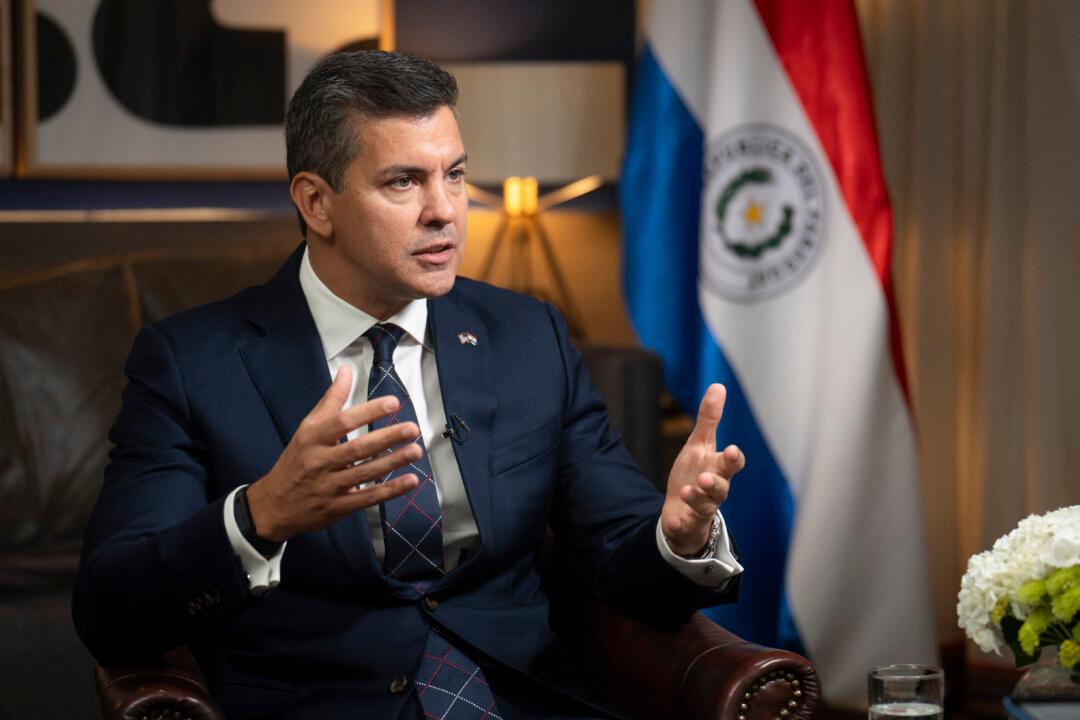Paraguayan President Santiago Peña said his country enjoys a “strong alliance” with diplomatic ally Taiwan, and that countries that have made the diplomatic switch to China have not fared as well as they had initially anticipated.
In a recent interview with EpochTV’s “American Thought Leaders,” Peña said that his country does not prioritize economic interests over its values and principles, and he described the relationship between Paraguay and Taiwan as that of “good friends.”






